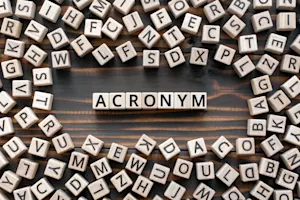What Makes This Word Tick
Ah, "onomatopoeia" is a word that's almost as fun to say as the noises it describes. Simply put, it's a term for words that mimic the sounds they describe, like "buzz" for a bee or "clang" for a cymbal. The word itself is a bit of a tongue twister, often resembling an incantation more than a simple label for sound mirroring.
If Onomatopoeia Were a Person…
If onomatopoeia strolled into your life, it would be that quirky friend who drops by unannounced with a noisy bag of novelties. From conversations to dinner parties, they'd bring a delightful chaos, laughing loudly and always making sure every silence was filled with a whoosh, bang, or hum.
How This Word Has Changed Over Time
Originally from the Greek, "onomatopoeia" hasn't strayed far from its roots. The Greeks loved their word play, and over the centuries, writers and poets have made liberal use of onomatopoetic words to bring their works to life, filling pages with the literal sound of action.
Old Sayings and Proverbs That Use Onomatopoeia
While no ancient proverbs directly quote onomatopoeia, many traditional tales and expressions thrive on sound mimicry. Consider: "A watched pot never boils"—you can almost hear that kettle resisting the whistle as you repeat it.
Surprising Facts About Onomatopoeia
Interestingly, onomatopoeic words can vary dramatically between languages. For example, where English-speaking dogs go "woof," in Japan, they say "wan-wan." Even animal noises adapt to local linguistic flair, proving onomatopoeia isn't just about sounds—it's about culture too.
Out and About With This Word
In the world of comics, onomatopoeia takes center stage. Think of Batman's action-packed pages filled with "POW!" and "BAM!" It isn't just part of the scenery; it practically is the storytelling, adding layers of sound to otherwise silent images.
Pop Culture Moments Where Onomatopoeia Was Used
From the snap, crackle, and pop of a beloved cereal trio to the cymbal-heavy theme songs punctuated with impressive "dun dun duns," onomatopoeia has always had a comfy seat at pop culture's ever-noisy table. Remember the gadgets in the old Batman TV series? Pure onomatopoetic gold.
The Word in Literature
Writers like Edgar Allan Poe and Lewis Carroll—champions of linguistic experimentation—loved a splash of onomatopoeia to add texture and excitement. Whether it's the eerie rustling of the leaves or the chaotic bustle of a bustling town, onomatopoeia is literature's soundtrack.
Moments in History with Onomatopoeia
Picture the first battle scenes in cinema—complete with orchestras of sound effects like "boom" and "thud" to orchestrate the chaos. Onomatopoetic impulses were behind many a radio show's glory days, making stories as easy on the ears as they were engaging for the imagination.
This Word Around the World
From the melodic "sussurro" in Portuguese to describe a whisper, to the charming "klink-klank" in Dutch for the sound of a bell, onomatopoeic expressions wrap their arms around the globe, adapting to local flavors and soundscapes.
Where Does It Come From?
Borrowed from Greek, "onoma" meaning "name" and "poiein" meaning "to make," the word essentially translates to "the making of a name." It wonderfully captures the essence of what onomatopoeic words do: they create names by imitating natural sounds.
How People Misuse This Word
At times, people use "onomatopoeia" to describe any words related to sound, but its true definition is more specific: it's about the sounds that words directly onomatopoeically mimic, like the hiss of a snake or the crunch of gravel underfoot.
Words It’s Often Confused With
Alliteration: It’s the repetition of sounds, especially consonant sounds, like "Peter Piper picked a peck." Not to be confused with words that mimic sounds.
Assonance: This is the repetition of vowel sounds within nearby words, like "the rain in Spain falls mainly." Again, not the mimicry of sound.
Euphony: While about pleasant sounds, it isn't about sound imitation.
Additional Synonyms and Antonyms
Synonyms for "onomatopoeia" might include "sound mimicry" or "audio imitation," while its antonyms could spotlight silence-related terms like "quiet" or "hush."
Want to Try It Out in a Sentence?
Feel free to tinker with this: "Every morning, the rooster announces the new day with a punctual 'cock-a-doodle-doo,' a classic example of onomatopoeia reverberating across the farm."
















